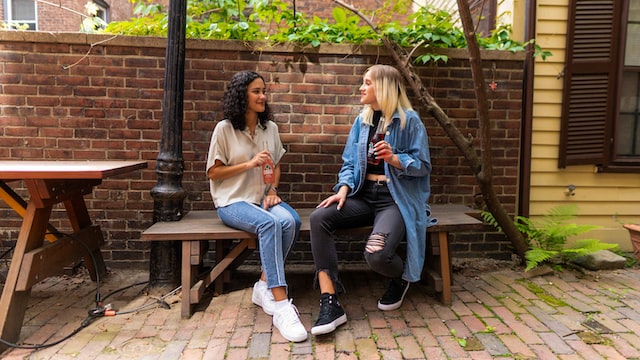If you have kids, you know sometimes it’s great. You might cherish their first steps, their first word, or the first time they use the toilet on their own. You may also have some not-so-great moments. Perhaps your child driver you a little crazy sometimes, and you must take a deep breath before cleaning up the latest mess or bandaging the latest skinned knee.
You must also have some tough conversations sometimes. For instance, you must have the sex talk at some point, and you must also have the drug talk. If you don’t, your kids won’t know what they should expect regarding your disciplinary policies and expectations.
Let’s discuss how you can have the drug talk right now.
You Can Ask Whether They Know Anyone Who Does Drugs
Drug crimes have dropped in several cities while rising in other places. For instance, Colorado drug crimes have dropped 23% since 2010. At the same time, nationwide opioid deaths have risen sharply.
Various eras have different drug problems. The 90s saw the crack epidemic. In the seventies and eighties, cocaine and quaaludes gained popularity. In the early 2000s, ecstasy became popular.
You might not know what’s around your child’s school, at the parties they attend, or in their social circle. You can ask whether they know anyone who does drugs, though.
You should not feel awkward having these conversations if you and your child share trust and respect. If you make them feel they can discuss difficult topics with you, they should open up.
Talk About Their Friends
You can tell them that if they have any friends doing drugs, they should take care. They should not do drugs with their friends, but you can emphasize they might still get into trouble if they’re at a party or riding in a car with drugs around. Even if they’re not personally doing anything, the police can still detain them.
You probably can’t demand your child find different friends if they know some drug users, but you can ask them to exercise care and make good choices. You can tell them you don’t want any drugs in the house and you don’t want them experimenting. If they do, and you find out, you can tell them you’ll ground them and take away their privileges.
You Can Describe Your Personal Experiences
You might also describe your drug experiences if you’ve had any. Maybe you’ve never tried drugs, but if not, you probably knew someone who did. You might have a family member who got into drug-related trouble. Maybe they even served some jail time, or the police arrested them at some point.
You can tell your child they can ask any questions and talk with you anytime they need. Make sure they understand you have an open-door policy. If they’re experiencing peer pressure, they should immediately let you know.
You can’t always completely protect your child, but you should definitely discuss these things.

